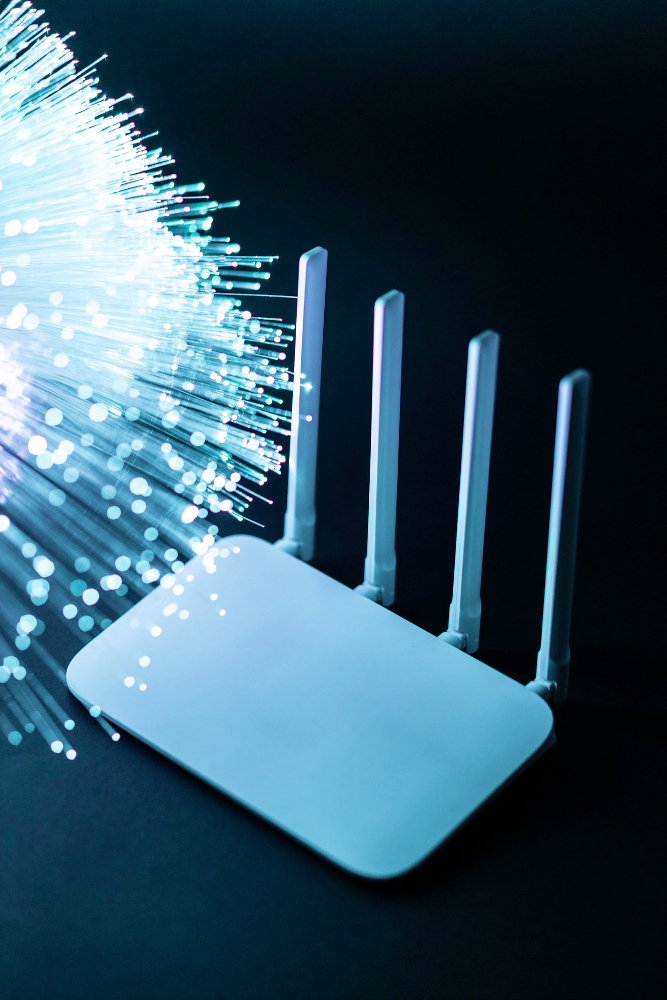Understanding Fiber Internet Prices: A Simple Guide
In today’s digital world, the demand for faster and more reliable internet is higher than ever. With the rise of streaming, remote work, gaming, and smart home devices, people are looking for internet options that can handle heavy data use without lag or interruptions. This is where fiber optic internet comes in. It’s known for being one of the fastest and most dependable types of internet available, offering impressive speeds and reliable connections. But what about fiber internet prices? For many, cost is a significant factor when deciding whether to switch to fiber or stick with traditional options. This article will dive deep into understanding the factors that influence fiber internet prices and what you can expect when making the switch.
What Is Fiber Internet?
Before jumping into fiber internet prices, it’s essential to understand what fiber internet is and why it’s considered superior to other types of internet. Fiber optic internet uses fiber optic cables, which are made of thin strands of glass or plastic. These cables transmit data as light, allowing for faster speeds and more reliable connections than traditional copper-based cables like DSL or cable internet.
Fiber internet offers symmetrical speeds, meaning you get the same download and upload speeds, making it ideal for tasks like video conferencing, gaming, and uploading large files. In contrast, most other types of internet have much slower upload speeds, which can create a bottleneck when you’re trying to upload data.
How Fiber Internet Prices Compare to Other Internet Options
One of the first things people want to know is how fiber internet prices compare to other options like DSL, cable, or satellite internet. On average, fiber tends to be more expensive than DSL or cable but cheaper than satellite internet, which is often the most costly option due to its specialized equipment and data limitations.
However, the price difference between fiber and other internet types has been shrinking as fiber becomes more widely available. In many areas, fiber internet prices are comparable to cable, especially when you consider the benefits in speed and reliability. While it may still be slightly more expensive in some regions, the overall value you get from fiber’s faster speeds often makes it worth the extra cost.
Factors That Influence Fiber Internet Prices
Several factors can affect fiber internet prices, including location, speed, installation costs, and extra services. Let’s break these down:
1. Location
Fiber optic internet isn’t available everywhere yet, and where you live can have a big impact on how much you pay. In urban areas with high demand and well-developed infrastructure, fiber internet prices may be lower because providers have already laid the necessary cables and can spread the costs across more customers. In rural or underserved areas, fiber infrastructure may be limited, leading to higher prices due to the cost of expanding the network.
2. Internet Speed
Speed is one of the most significant factors affecting fiber internet prices. Most fiber internet providers offer several speed tiers, ranging from around 100 Mbps (megabits per second) to 1 Gbps (gigabit per second) or even higher in some cases. Naturally, faster speeds come with higher costs. If you only need the internet for basic tasks like browsing and checking email, a lower-speed package might be more affordable. However, if you’re into gaming, streaming in 4K, or need internet for a home office, a higher-speed package will be a better investment.
3. Installation Costs
Unlike cable or DSL, which may already have the necessary wiring in your home, fiber internet often requires a more involved installation process. Fiber optic cables may need to be run directly to your home, which can sometimes incur installation fees. Some providers waive installation fees for new customers, while others may charge a one-time setup fee. Make sure to check if installation costs are included in the quoted fiber internet prices or if they are separate.
4. Additional Services
Many fiber internet providers bundle their services with extras like TV and phone, which can impact the overall cost. While bundling can sometimes save you money, it’s essential to ensure you’re not paying for services you don’t need. If you’re only looking for internet, opting for a standalone fiber internet plan might be the most cost-effective choice.
Are Higher Fiber Internet Prices Justified?
While fiber internet prices may initially seem higher than other types of internet, the benefits often justify the cost. Here’s why:
1. Faster Speeds
Fiber internet offers the fastest speeds available. With download and upload speeds reaching up to 1 Gbps or higher, you can download movies in seconds, stream high-definition content without buffering, and video conference smoothly even with multiple devices connected. These speeds make fiber an excellent option for households with heavy internet users or businesses that rely on a stable, fast connection.
2. Better Reliability
Fiber optic cables are less susceptible to interference from environmental factors like bad weather, which can affect cable or DSL connections. This makes fiber a more reliable option for internet users who require constant, uninterrupted connectivity.
3. No Data Caps
Many fiber internet providers don’t impose data caps, unlike some cable or satellite providers. This means you can use as much data as you want without worrying about overage fees or throttled speeds, making fiber internet prices more predictable.
4. Symmetrical Speeds
As mentioned earlier, fiber internet offers symmetrical speeds, which means the download and upload speeds are the same. This is a significant advantage for people who upload large files, such as video editors or those who work with cloud-based applications. In contrast, other types of internet often offer much slower upload speeds compared to download speeds, which can cause frustration for users who need to send large amounts of data.
How to Choose the Right Fiber Internet Plan
With different fiber internet prices and packages available, it’s essential to choose a plan that fits your needs. Here are some tips to help you make the best decision:
1. Evaluate Your Usage
Consider how you use the internet. If you only use it for basic tasks like browsing and streaming, a lower-speed plan (100-300 Mbps) may be sufficient. However, if you have multiple people in your household using the internet for streaming, gaming, and working from home, you’ll want to invest in a higher-speed plan (500 Mbps to 1 Gbps) to ensure everyone gets a smooth, lag-free experience.
2. Check for Promotions
Many providers offer promotional rates for new customers, which can lower fiber internet prices for the first year or so. Be sure to ask about any available promotions and pay attention to when the promotional period ends to avoid surprises on your bill.
3. Look for Bundles (If Needed)
If you also need TV or phone service, bundling might save you money. However, if you only need internet, compare standalone fiber internet prices to ensure you’re not paying extra for services you won’t use.
4. Consider Long-Term Value
While fiber internet may have higher upfront costs, it often provides better long-term value due to its faster speeds, reliability, and lack of data caps. Over time, these benefits can outweigh the initial price difference compared to other types of internet.
Is Fiber Internet Right for You?
The decision to switch to fiber optic internet ultimately depends on your needs, location, and budget. If you need faster speeds, better reliability, and can afford the slightly higher fiber internet prices, it’s likely worth making the switch. The growing demand for high-speed internet, combined with the expansion of fiber networks, means that fiber optic internet is becoming more accessible and affordable.
For those who live in areas where fiber internet is available, it’s an excellent option for ensuring your home or business is future-proofed against the increasing internet demands of modern technology. Additionally, as more providers continue to expand their networks, fiber internet prices are expected to become more competitive, making it an even more appealing option for consumers in the near future.
Conclusion
Fiber internet prices may be higher than traditional options, but the advantages it brings lightning-fast speeds, better reliability, no data caps, and symmetrical download/upload speeds make it a worthy investment. While your location and specific needs will influence your decision, fiber internet is an excellent choice for those seeking a robust, future-proof internet solution. By carefully evaluating the various factors that affect fiber internet prices, you can choose the best plan that fits your lifestyle and budget while enjoying all the benefits fiber has to offer.




Post Comment